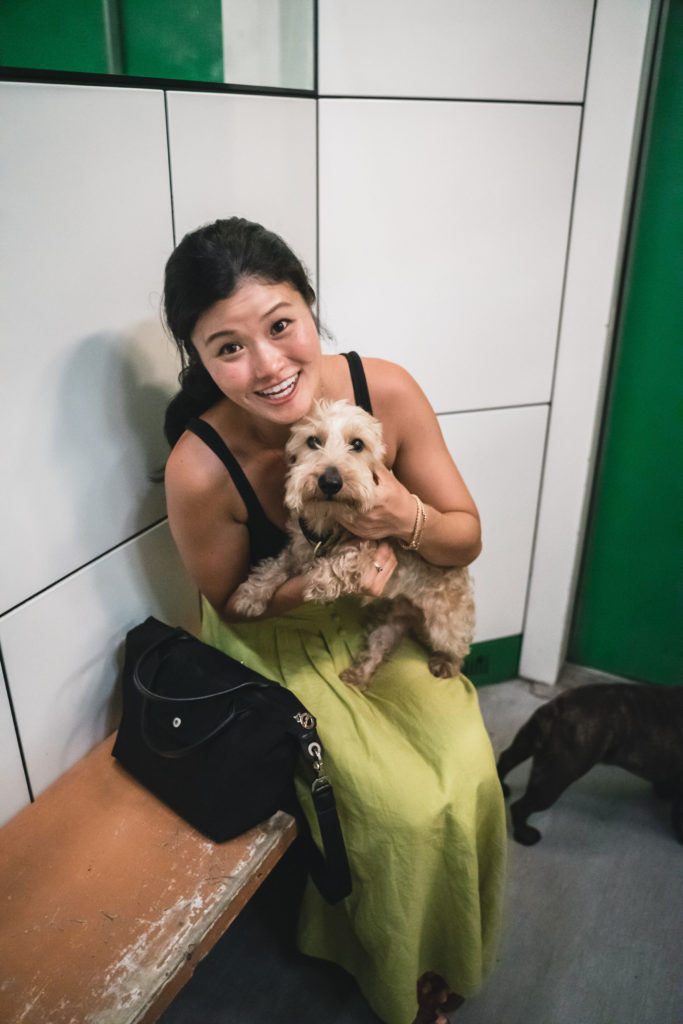Your child is struggling at school.
He doesn’t enjoy going to school like he used to. He’s counting down the days for the next school break.
Your experience with his school isn’t so positive at this point either. You’re tired of hearing from the teacher about late assignments. You don’t want to repeat yourself any more about his inappropriate behavior. And general disorganization? Is that really an urgent issue right now?
Before things get any worse, you need something different… now!
You are not alone.
I wish you and I could have met earlier in a more pleasant situation but c’est la vie.
Most children and teens that I work with end up on the teacher’s ‘naughty list’ at least once in their lifetime. Let’s not beat around the bush here — it’s more like at least once a year.
These struggling learners often get shuffled across different international schools. Without adequate support to meet the diverse learning needs, it’s easy for these students with differences to fall through the cracks.
International schools are often not best positioned to welcome kids with special needs. There are schools where their business and financial agendas take top priority. And learners with differences are not the school’s favorite customers.
An occupational therapy consultant might be able to bridge some gaps that the school and learning support team may not see.
How can occupational therapy consulting help?
Common reasons for traditional OT referral at school are linked to individual needs — not knowing how to make friends, not being able to stay on task, difficulty moving on from one activity to the next, eating sensitivities, etc.
Traditionally, OT work consisted of one-to-one sessions in direct contact with the children. You might imagine your child going to a clinic after school or being pulled out of a class to work on an area of weakness.
In recent years, consulting and coaching have been found to be more effective in setting children up for success. This indirect work looks at building confidence of the teaching team who are with these learners every day — teachers, classroom assistants, tutors, parents, any other trusted adults in the child’s school life.
Here are 10 common situations for when international school parents sought out OT consulting:
- “Do we really need support now?”
Evaluating the needs of the child helps to illustrate where we stand now (a baseline). A school functioning report analyzes your child’s fit to the school — the teacher, classmates, classroom setup, and school routines. This current snapshot of your child at school gives us a starting point for what to focus on changing and how. This is when it’s most important to talk about potential risks of not working on issues now.
Remember, you decide what’s best for your child’s system of support and care plan. So, hear the teacher out. Do your research and understand your options. Not only what’s available in your local community but look into how this might be approached back in your home country. Or in another country where inclusive education and therapy plans align with your family values.
This is a daunting process but you don’t need to do this on your own. Find support that you can trust. And place yourself in the best position to make decisions that make the most sense for your kiddo.
- “What’s this report actually saying about my child? And how do I help him move forward?”
Every child has different needs so should be unique to the child. Because more people are seeking answers for their kids’ differences, more therapists depend on templates and lists of recommendations that isn’t personalized enough.
Learning support plans can also be full of professional language that it’s difficult to imagine what changes need to take place from the child’s perspective. Let alone explaining these changes to the child without isolating him.
An occupational therapy consultant can be the medical and educational interpreter you didn’t know you needed. Having therapy and school reports explained in everyday language can help you better understand the child as a whole. Owning this information can be an empowering process that supports you as you become a parent to a child with different needs.
- “Which recommendation do I start with?”
You may have picked a few things out of the laundry list of recommendations to try out. But it’s been difficult to keep up with them.
Again, you are not alone.
An OT consultant can coach you and your family through prioritizing recommendations. This is where you commit to making bite-size changes in your. daily life. Taking steps forward towards the family life you want to create doesn’t have to be daunting.
- “He’s never been able to do that! We’ve already tried x, y and z.”
Reframing an ongoing problem could be the mindset shift you need. With a fresh perspective, you might find new and different solutions that spark forward progress.
- “His assignment is always different to the other kids. And we’re worried he might feel too different.”
Universal design for learning gives all students equal opportunity to succeed. In this way of thinking about education, the teacher has a set of skills they want the students to take away with them.
When lessons and assignments have clearly defined goals, it gives the learner a lot more flexibility. The way the student accesses information and shows their understanding can be aligned to the learner’s strengths. The way the learner expresses their understanding can be adjusted to their individual needs.
The OT consultant collaborates with the teacher and classroom assistant by designing a personalized learning experience that’s just-right for your child.
- “The school requires my child to enroll with a shadow or assistant. How and where do we start?”
An OT consultant supports the child at school by training his daily support team. There is bigger impact on the child by training the support person to meet their needs. There is only so much progress we can expect out of a 45-minute OT session each week. This is called capacity building where the child’s school support is a vital component to the child’s development.
- “What can help him focus and concentrate better at school?”
Neuro development takes time and redundant practice but there are ways to tweak the learning environment to improve learning. Not only for your child but different learners.
The OT consultant can work with the teacher to identify factors that might be distracting. She can make use of already available items like a sand timer from a board game and computer headphones to help kids stay on task better. These self-management strategies can be explained to students like glasses that help some kids see better but not necessarily everyone.
- “I don’t want to tell everything to a prospective school. What if they end up not taking him because he has therapy reports?”
You don’t want your child at a school that doesn’t take kids because they have therapy reports. But your fears are totally valid.
There are honest and smart ways to apply to a school so your whole child is accepted to the school; his strengths, areas of improvement, and preferences. A strength-based learner profile and an academic portfolio help to create a cohesive narrative that explains your child as a whole.
By reviewing clinical and school reports, interviewing former teaching and support team, collaborating with family members, and putting together a portfolio of work that your child has produced, it shows your proactive efforts to the prospective schools.
It’s often this positive attitude brought in by the family that helps give confidence in a school to say yes, build rapport and begin a collaborative relationship to support your child and his learning.
An OT consultant can follow up with you through the transition support.
- “Is our new school ready for him? What can I do to start the year off on the right foot?
Above mentioned learner profile and portfolio are a great start. Your biggest job as a parent to a special needs kiddo is to advocate for what he needs to succeed at school.
Every school is different, so start with what services are available at the new school and local community and see how it compares to a successful support system you have had.
An OT consultant can help prepare the transition plan so that the new teacher has time to plan for the new year with consideration to the child. A little bit of preparation and consideration goes a long way. Start building trust with the teacher before the first day!
- “We’ve been called in to discuss our son at school. How can we prepare? Are we in trouble?”
School meetings can be triggering. Is your child prone to get into trouble? It’s always worth preparing your mindset and documentation around the topic of discussion before meetings and support plan reviews.
If the school hasn’t shared an agenda, it’s best practice you ask for one so the meeting is solution focused and efficient.
An OT consultant is the bridge that brings together information to identify misunderstandings, mistrust and lack of respect. A communication strategy towards inclusion!
Are you currently in any of the above situations right now?
If so, I’d love to hear what helped your kiddo move forward.
Having supported both the family and teacher experiences of the above situations, I find myself in the most useful position as an independent practitioner. Being an independent consultant between the family and educators means that I can personalize and stay flexible in setting up the transition plan, system of support and care plan that best suits the child and his family.
If your kiddo has continued to struggle, it might be time to bring in an occupational therapy consultant to review his overall learning plan.
Still not sure if occupational therapy consulting is the right fit? Contact me at hello@ayaninomiya.com and request for a free initial call 🙂





